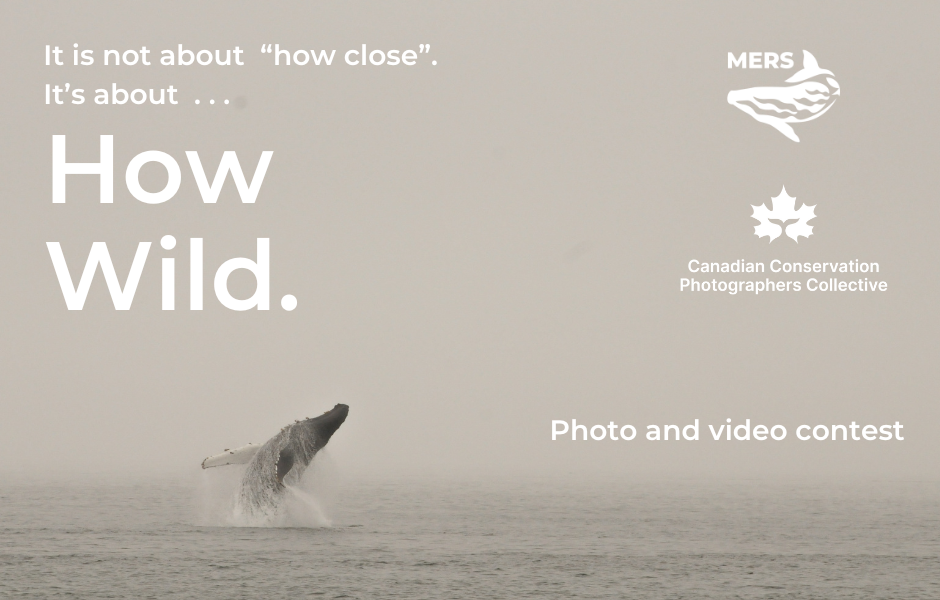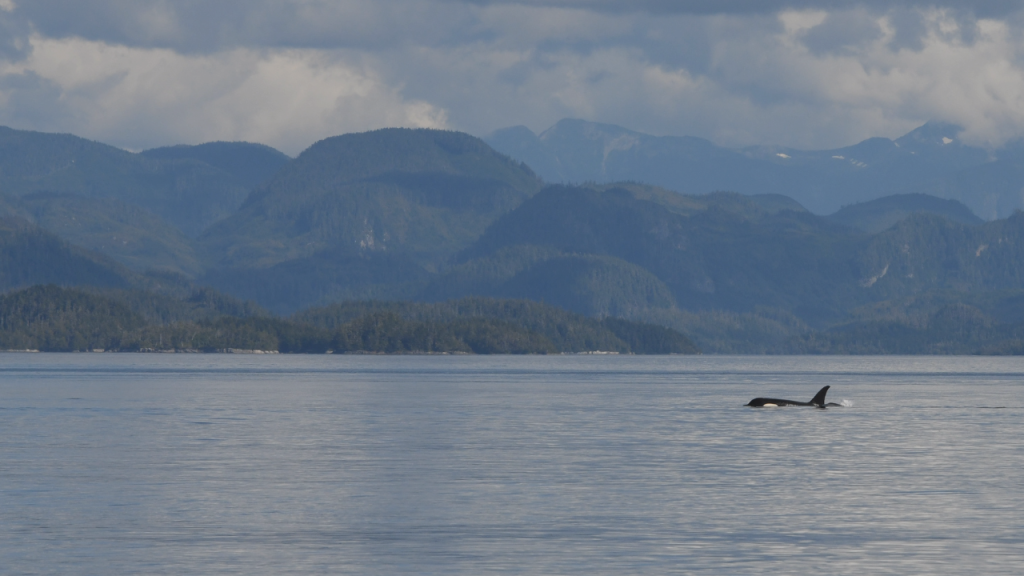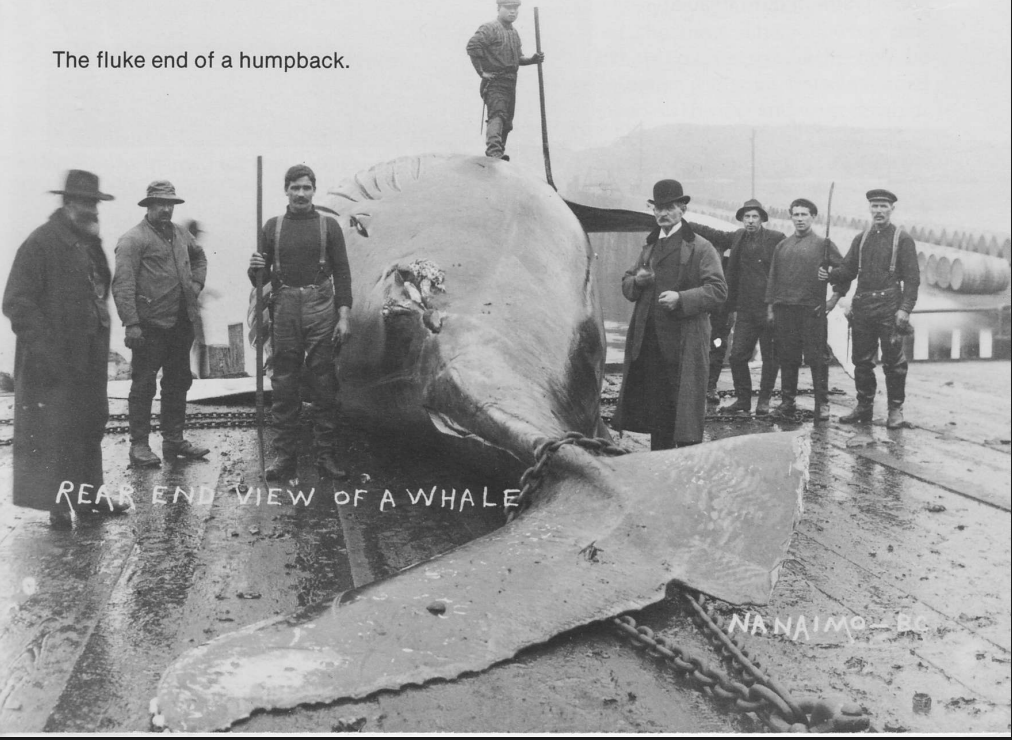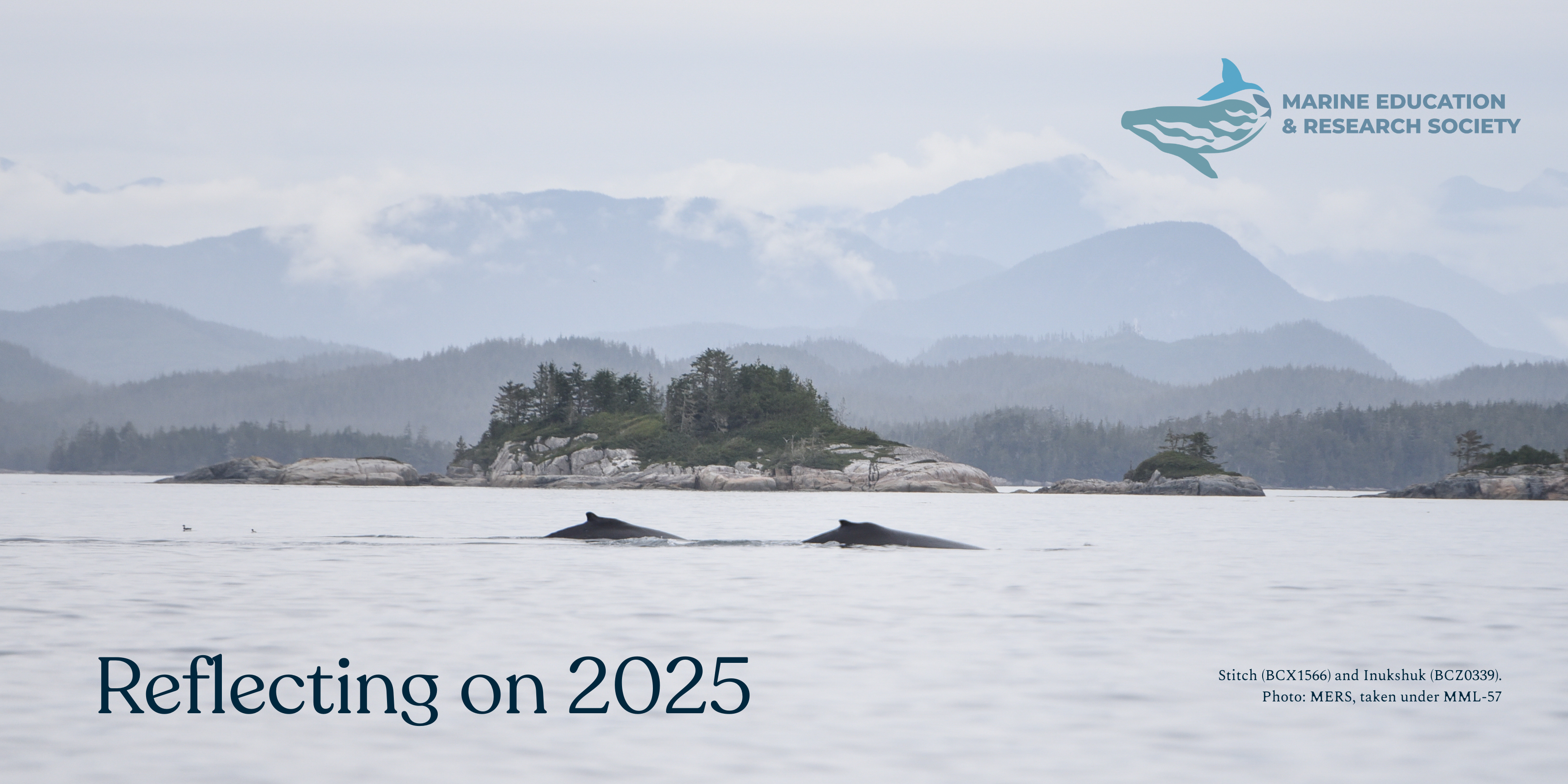Contest is now closed. Please see this link for the results
The Marine Education and Research Society (MERS) and the Canadian Conservation Photographers Collective (CCPC) invite photographers and videographers to share imagery of marine mammals in BC where the aesthetic provides a strong sense of the animals in the wild, rather than close to human activity.

Photo taken with 200 mm lens and cropped ©MERS, Marine Mammal License MML-42
The story behind “How Wild”
Wildlife imagery often appears to be valued for how large the animals are in the frame. The common discourse also often emphasizes “how close” a wildlife encounter was. The desire or expectation to be close can contribute to negative impacts on the wildlife we all hold so dear. e.g. underwater noise, risk of collision, confusion about laws and best practices, and the general disturbance from vessels that exacerbates the effects of other threats to marine mammals such as reduced prey availability and chemical pollution.
The aim of the contest is to help shift the culture, language, and imagery of marine mammal viewing and photography from “how close” to “how wild”. To aid a larger scale culture shift, some contest entries may be made available to print and television media. Photographer / videographer credit will be retained in all cases.
The contest builds on the messaging of the For the Whales responsible whale watching campaign in which MERS collaborated with 4VI/Tourism Vancouver Island and the North Island Marine Mammal Stewardship Association.
Please read the specifics below.
The link to enter the contest is at the bottom of the page.

Photo taken with 200 mm lens ©MERS, Marine Mammal License MML-57
Dates
- Contest closes: March 31st, 2025 at midnight PDT
- Winners announced: May 1st, 2025
Contest categories
There are 4 categories
- Photo taken from land
- Photo taken from vessel
- Video taken from land
- Video taken from vessel
Contest is open to all ages. Limit of 1 entry in each contest category.
Each contest entry requires filling out a submission form.
Prizes
Winners will:
- Be promoted with photo credit and tags on MERS and CCPC social media.
- Have their winning entry featured in Collective Magazine (fall edition).
- Gift certificates from Canvas Plus.
- Receive 50% off and free shipping for a canvas, fine-art, or custom picture frame with Vancouver on Canvas (up to a value of $500 of the initial amount, for regular priced items).
- Receive the book Sea Otters a Survival Story by Isabelle Groc (contest judge).
Judging
The contest winners will be determined by the Marine Education and Research Society and the Canadian Conservation Photography Collective. Each organization will have 50% weighting in the decision making.. The CCPC judges will be Isabelle Groc and Josh DeLeenheer.
Submission criteria
- Video / photo of the marine mammal(s) must have been obtained in British Columbia and be taken from surface level i.e. no imagery obtained underwater or by drone.
- Images must have been obtained legally and ethically. This includes that the videographer/photographer must have been beyond minimum avoidance distances as per the Marine Mammal Regulations and Management Measure to Protect Southern Resident Killer Whales. Photographer/videographer must not have been convicted or have open charges related to interactions with wildlife.
- Contest submissions do not suggest an interaction with the person taking the photos e.g. what could be interpreted as signs of stress in the marine mammal(s) or that there was a close encounter following the time the image was taken. This includes that there is no direct eye contact between the marine mammal and the lens.
- The marine mammal(s) bodies in the image take up less than 20% of the frame.
- Entrants retain ownership/copyright of the images. By entering the contest, permission is granted to MERS to share contest entries on their social media platforms, website, presentations, and with television, online, and print media. Photographer/videographer name will be embedded on all photos and videos. All such uses will be via royalty-free, worldwide, perpetual, non-exclusive license to publicly reproduce, encode, store, copy, transmit, publish, adapt, exhibit and communicate to the public by any means and in all media, for any purpose, without limitation and without additional review, compensation or approval from the photographer/videographer.
- Contest is open to all ages. Limit of 1 entry in each contest category.
Contest categories:
– Photo taken from land
– Photo taken from vessel
– Video taken from land
– Video taken from vessel - No text nor watermark are to be on the submitted photo or video.
- Accepted file formats:
Photo format: JPEG, JPG or PNG. Maximum file size: 16MB
Video format: MP4 or MOV. Maximum file size: 50MB - Submissions must include the date and location of the image (including First Nations Territory acknowledgement) and specifics re. camera and lens used to take the photo or video.
- Marine mammal species name(s) must be provided including, for Orca, which population the whale(s) belong to. For imagery of Humpback Whales or Orca, ideally the identification of the individual whale would be included.
- Each submission must also have a title and story behind the image, including a description of the encounter that supports the aims of the How Wild contest, demonstrating the relationship between the marine mammal(s) and the context.
- The following are exempt from the contest.
Video and photos:
– Taken by MERS staff
– Taken by CCPC members
– Taken under research license


